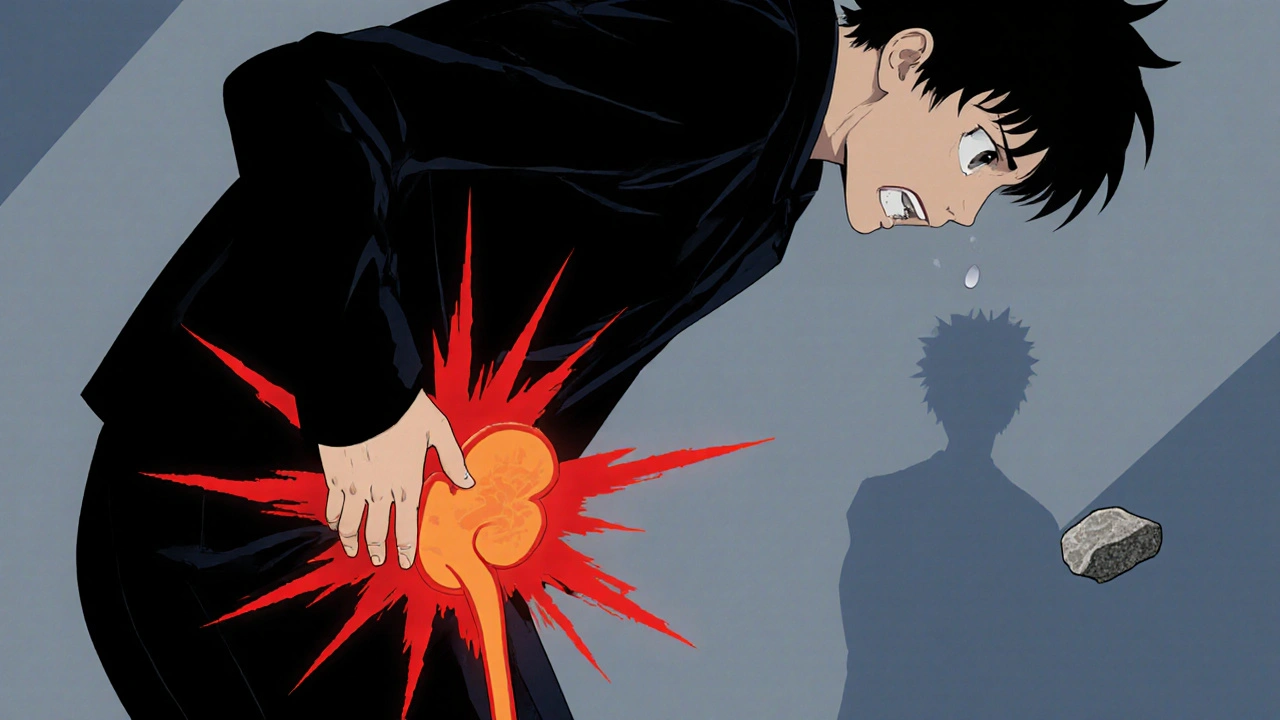Kidney Stone Treatment: Effective Options and What Works Best
When you’re dealing with a kidney stone, a hard deposit of minerals and salts that forms inside the kidneys and can cause severe pain as it moves through the urinary tract. Also known as renal calculi, it’s not just a one-time problem—many people deal with them again and again. If you’ve had one, you know how sudden and brutal the pain can be. It doesn’t just hurt—it can make you nauseous, sweaty, and unable to sit still. But here’s the good news: most kidney stones pass on their own, and there are proven ways to speed that up.
What you do right after the pain starts matters a lot. Drinking plenty of water is the simplest and most effective first step. Doctors often recommend at least 2 to 3 liters a day to help flush out the stone. If you’re in pain, over-the-counter pain relievers like ibuprofen can help manage it while your body works. But if the stone is too big—usually over 5 millimeters—it might get stuck. That’s when you need to see a doctor. Treatments like shock wave lithotripsy break the stone into smaller pieces, while ureteroscopy uses a tiny scope to remove or break up the stone directly. For larger stones, a procedure called percutaneous nephrolithotomy might be needed. It’s more invasive, but it’s highly effective.
What causes kidney stones? It’s not just one thing. Too much salt, not enough water, eating too much animal protein, or even certain supplements like vitamin C in high doses can raise your risk. If you’ve had one stone, you’re more likely to get another. That’s why prevention is part of treatment. Blood and urine tests can show if you have a metabolic issue—like too much calcium or uric acid—that’s making stones form. Based on that, your doctor might recommend dietary changes, medications like thiazide diuretics or allopurinol, or even potassium citrate to make your urine less likely to form stones.
There’s a lot of advice out there—lemon juice, apple cider vinegar, herbal teas—but not all of it works. Some may help slightly, but they’re no substitute for medical care when you’re in serious pain. The real focus should be on what science backs: hydration, pain control, and knowing when to get help. And if you’ve had multiple stones, a simple 24-hour urine test can give you a clear plan to stop them from coming back.
What you’ll find in the posts below are real comparisons and practical guides—not guesses. You’ll see how different treatments stack up, what works for different stone types, and how to avoid the most common mistakes. Whether you’re trying to pass a stone right now or want to make sure you never get another, this collection gives you the clear, no-fluff facts you need.

Why Early Detection and Prompt Treatment Matter for Kidney Stones
Early detection of kidney stones reduces pain, costs, and complications. Learn symptoms, diagnostics, treatment options and prevention tips to stay stone‑free.
